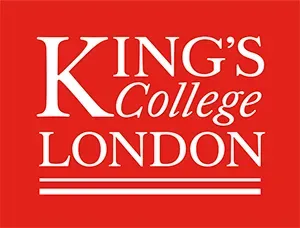What is the course about?
This course aims to acquaint students with a new and vibrant field of behavioural public policy, which is intrinsically multi-disciplinary. Its main objectives are (i) to introduce students to key findings of behavioural sciences (for students who are new to the field), (ii) to highlight the relevance of behavioural findings for public policy and law, (iii) to study real-world examples of behaviourally informed public policy in Europe, and (iv) to take a critical perspective on the use of behavioural findings in policy-making and law-making.
The course will start with an introduction to behavioural insights and cover how empirical findings from psychology have profoundly influenced economics through the notion of ‘bounded rationality’. Next, we will turn to the relevance of empirical knowledge on how people behave for policy- and law-making . The usefulness of behavioural insights for governments is associated with “nudges”, but this is only part of the story. We will explore debates on the legitimacy of using psychology in the running of goverment and the effectiveness of behavioural interventions. These general lines of enquiry will be related to specific policy topics, such as consumer protection in online environments, the promotion of sustainable behaviour and healthy lifestyles.
The course will consist of a series of webminars in the fall (7 webminars of 2 hours each and 5 small group sessions (1,5 hours each). During the period between October and December, students should plan to read, watch videos, and interact remotely in small groups. They will produce short reflections on the assigned materials and get feedback before the residential week.
The residential intensive week will take place at the UCLouvain Brussels campus at the end of January. Students will attend classes, meet with EU officials involved in behavioural policymaking, and work on a team project.
Course format and schedule
- Online: 14, 20, 21 October ; 3, 4, 10, 11, 17, 18, 24, 25 November, 2 December.
- On site: 26–30 January: Residential week in Brussels (UCLouvain Saint-Louis campus)
Classes will be on Tuesdays from 6pm to 8pm (Brussels time). Small group sessions will be on Monday (the day before class) from 6 pm to 7:30 pm. This timing is imposed for the first group session. If all members of a group agree with their tutor, there will be flexibility. The students and their tutor can unanimously decide to choose a different time as long as it is before the next class.
Who can apply?
Master's students in psychology, economics, law, political science, and philosophy.
Learning outcome
At the end of the course, students will be able to explain in a rigorous manner some key results from behavioural science and discuss their relevance to policy-making in a given context. They will be familiar with key texts in the literature on “nudges”, including critical ones, and will be able to relate ideas discussed in those texts to real-world examples of behavioural policymaking. They will be familiar with the EU framework for bringing scientific evidence to policymaking and some behavioural studies the EU has commissioned. They will develop a capacity to discuss the processes of behavioural policymaking from their own disciplinary angle (psychology, economics, law, political science, philosophy).
Workload and assessment
The estimated workload for this course is approximately 125 hours.
Students will be evaluated both for their teamwork and individual progress and reflection. The evaluation of teamwork will be based on
- 5 weekly team assignments relating to the readings handed in during the phase of remote learning
- A set of questions to Commission officials
- One final presentation at the end of the residential week
Individual evaluation will be based on
- A learning journal where the student will reflect on different aspects of their learning journey (guidance will be provided)
The assignments will require reading on the part of the students between the weekly class and the small group session.
Participants will receive a grade.
More info
For more detailed information about the course, follow the link to the course page at UCLouvain.
How to apply
Students interested in the course need to complete the application form by September 20th and will receive a response by September 30th.
Organiser and partners
This course is hosted by UCLouvain. King’s College London, the University of Oslo, Humboldt-Universität zu Berlin, Copenhagen Business School, and the European Commissions are partner institutions.
Contact details
- Prof. Anne-Lise Sibony, Academic Chair Open Campus, anne-lise.sibony@uclouvain.be
Funding
The course is organised as a blended intensive program (BIP) within Erasmus+, and hence you may apply for a grant at your home university. Please contact the mobility office at your university for more information:
- Aarhus University: aarhus@circle-u.eu
- University of Belgrade: Nikola Savic nikola.savic@rect.bg.ac.rs
- Humboldt Universität zu Berlin: berlin@circle-u.eu
- King’s College London: Students are not eligible for Erasmus+ funding, but may have access to internal funding. Please check for funding opportunities or contact the Circle U. Team for more information: circle-u@kcl.ac.uk
- UCLouvain: no grant is available, as the course is hosted by UCLouvain
- University of Oslo: erasmus-uio@admin.uio.no
- Université Paris Cité: circleu.iro@u-paris.fr and our website (u-paris.fr).
- University of Pisa: circleU.erasmus@unipi.it and our website (unipi.it).
- University of Vienna: circle-u@univie.ac.at








